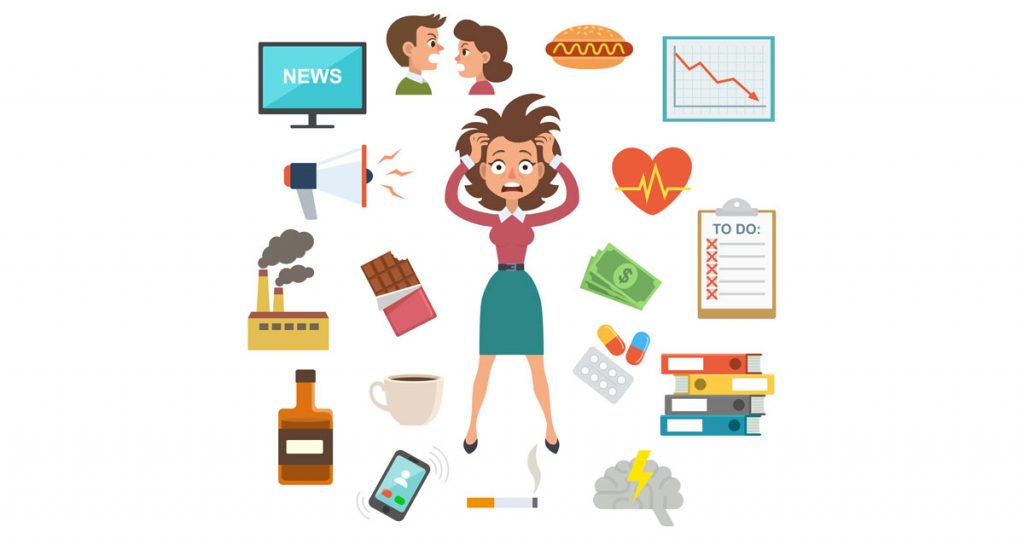
Some stress is beneficial but too much can be exhausting and can make you ill. Often we are so used to being stressed due to our increasingly busy lives that we don't even realise that we are actually stressed. And with the current situation with everyone juggling everything, homeschooling, work, housework it can feel overwhelming. But there are lots of ways to help us manage these feelings.
What is Stress?
It is the body's reaction to harmful or dangerous situations.
A stress response is the body's emergency reaction or "fight or flight" response, when your body (physical and thought) is reacting to danger and then a protective mechanism kicks in. However this stress response can be turned on when you are not in actual danger and your body perceives something as an emergency when it isn't. If this continues too long it can it can trigger health issues.
Common signs of the stress response are:-
- The heart rate increases
- Breathing increases
- Muscles tense up
- Blood pressure goes up
Not all stress is bad, it helps us accomplish tasks and helps prevent harmful situations (e.g. slamming on the car brakes to avoid an accident). However our body is only designed to handle stress for short periods of time (designed to help us avoid immediate danger/harm) so long term build ups of stress can lead to both emotional and physical issues if experience over long periods of time.
Some of the common symptoms of Stress
- Emotional
- Irritability or moodiness
- Feeling overwhelmed by small tasks
- Difficulty relaxing and being able to calm a busy mind
- Constant worrying
- Inability to concentrate
- Physical
- Low Energy
- Headaches
- Chest pain and/or rapid heartbeat
- Frequent infections such as coughs and colds
- Disrupted sleep
How to help manage stress
- Reduce stimulants - Aim to avoid or at least reduce levels of alcohol, caffeine and nicotine especially before bed.
- Take some exercise - this doesn't have to be going to the gym (and they are shut right now!). A brisk walk, a HIIT session (Joe Wicks is great) at home, bootcamp or a Yoga workout on You Tube will all help to metabolise excessive stress hormones and promote the good hormones (endorphins) which have been proven to lift mood.
- Get more sleep - if you have problems with sleep patterns, try going to bed at the same time each evening, stop using electronics an hour before bedtime, reduce late intake of alcohol or caffeine, take a warm bath or read a book to help the mind relax.
- Try some relaxation techniques - A simple one to try involves breathing (4-7-8). Take a breath in for 4, hold for 7 and breathe out for 8 and do this 4-5 times. This will help relax the body.
- Try Meditation - we have all been told about the benefits of factoring in some mediation to our day and the proven positive impact it has on our mind and body. There are some great free resources out there - Insight Timer is one. Calm is also good but does require an annual fee.
- Manage your time - easier said than done I know! But it does help us from getting so overwhelmed. I write a list and then prioritise them with timelines linked to my diary. This helps to manage them into smaller chunk sized tasks which then feel achievable.
- Learn to say No - Don't take too much on at a time.
- Take time out for you - take a walk at lunchtime if you work in an office, try to set aside at least 1/2 hour to read or watch something onNetflix, use some essential oils in a bath or in a diffuser.
- Book a Massage - it is proven that massage promotes relaxation and helps with a better sleep.
Hopefully some of the ideas above will help you to feel less overwhelmed and more balanced.
